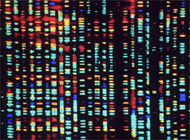Government clamps down on genetic testing

The government wants to tighten the laws on genetic testing for hereditary diseases.
It has put forward a series of proposals to limit the use of test kits and protect the rights of the individual.
The measures would prevent businesses from screening employees and stop insurance companies testing policyholders.
Tougher regulations would also be introduced governing prenatal testing, and counselling would be offered to individuals before the testing procedure.
Ruth Reusser of the justice ministry told swissinfo that the move would put Switzerland at the forefront of regulating different aspects of genetic testing
“The government wants to put in place a set of laws that would cover the medical field, the workplace, insurance policies and paternity testing,” she said.
“That is quite unlike most other countries where issues have only been dealt with in specific areas.”
Quality control
Government proposals to improve the quality of the testing procedure have been welcomed by Suzanne Braga, co-president of the Swiss society of medical genetics.
“At the moment we are in a position where we are powerless against the abuse by medical laboratories,” she told swissinfo.
“Many of the tests available are neither of good quality nor do they make any sense for a physician to use in reaching a diagnosis.”
The legislation would require laboratories performing genetic testing to be certified and put in place a commission of experts to oversee their work.
Counselling
For Braga, the most important aspect of the proposals is the focus on individuals receiving appropriate counselling before being tested.
“Genetic testing has to be embedded in good counselling because genetic diseases are perceived as having something to do with the person’s identity and it is like a threat from within,” she said.
Braga said those performing the counselling would also have to be specifically trained, and testing should only be carried out if there were a clear indication of the need for it within the family.
“Giving good counselling means that individuals are given all the information and instruments they need to make their own independent decisions as to whether they want to be tested,” she added.
“This applies particularly to predictive testing before you have any signs of a disease as it could have repercussions for the quality of your life.”
Respecting people’s privacy
The draft law would not require people to undergo testing, even if there is a history of genetically transmitted diseases in the family.
“That is enshrined within the Swiss constitution,” says Reusser. “You always need the consent of the person being tested.”
Companies will not be able to insist that an employee undergo a test, nor will they be allowed to ask for the results if a test has been made.
They can only ask about an individual’s current state of health, but not about what might happen to them in the future based on genetic testing.
The exceptions will be jobs in which an individual has a certain responsibility for the safety of others – such as pilots.
This would also apply where the working conditions could prove dangerous to the worker’s current state of health because of a genetic predisposition to an allergy – for example the chemical industry.
“The proposals are very clear that the rights of the individual must be protected,” says Reusser.
Insurance companies will also not be able to force private life insurance policyholders to take a test, although Reusser says they can ask for the results if they know a test has been made for policies above SFr400,000.
Babies to order
Prenatal testing will only be performed by doctors able to give appropriate counselling and can only be carried out on unborn children for health reasons.
The law prevents the possibility of determining the looks and characteristics of a child – a concept that Braga says is not a real part of genetic testing.
“That comes form the idea that a gene does one thing,” she says. “It’s not one gene that makes a personality or decides about a whole life, but rather a number of factors combined.”
The proposals will not cover the DNA database set up by the Federal Police Office in 2000. That was dealt with in separate legislation in parliament on Wednesday.
The House of Representatives voted in favour of extending the use of genetic fingerprinting in the fight against crime.
swissinfo, Jonathan Summerton
New DNA laws will cover the medical field, the workplace, insurance policies and paternity testing.
Individuals are to receive counselling before being tested.
Insurance companies will be able to ask for DNA test results for policies above SFr400,000.

In compliance with the JTI standards
More: SWI swissinfo.ch certified by the Journalism Trust Initiative

You can find an overview of ongoing debates with our journalists here. Please join us!
If you want to start a conversation about a topic raised in this article or want to report factual errors, email us at english@swissinfo.ch.